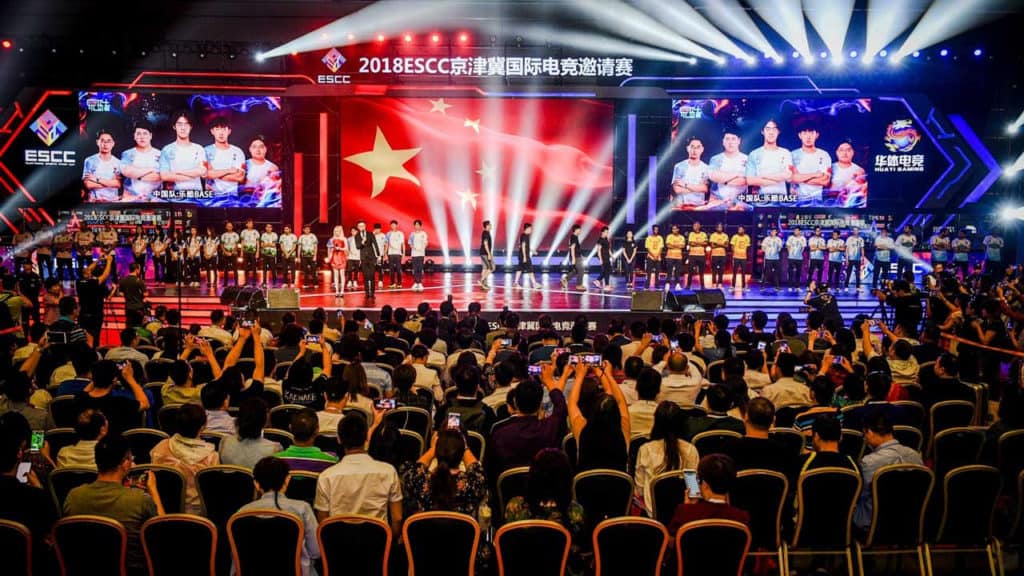Video Game Industry: Statistics, Demographics and Trends in China
China is one of the most lucrative gaming markets in the world. Over the last decade, the country’s gaming revenue increased more than six-fold and it is predicted to continue growing (albeit at a slower rate) over the next few years.
This blog reveals the latest video game statistics, demographics and trends, and looks at how popular is gaming in China.
Video game industry statistics in China
China is a key player in the global games market. This is demonstrated by these insights into market growth and video game industry revenue in China:
- There are over 685 million gamers in China – almost half the country’s population.
- Chinese video game revenue was estimated to be the largest in the world at $US46 billion in 2021.
- Revenue growth fell from 20.7% in 2020 to 6.4% in 2021 after Chinese regulators imposed strict play limits for under 18s and froze new game license approvals.
- The number of gamers in China also slowed, rising by just 0.22% compared with 3.7% growth in 2020.
- Video game industry growth in China is expected to continue with a 14% compound annual growth rate (CAGR) predicted between 2021 and 2026.
- Mobile games dominate the Chinese market, accounting for over 76% of total gaming sales revenue in 2021 (compared with just 5% in 2012). Client games have a share of about 20%, and browser-based, home console and other games represent around 4% of the market altogether.
- The most popular mobile game genres in China in 2020 were role-playing games (RPG), shooting, multiplayer online battle arena (MOBA), turn-based RPG, and strategy.
Video game industry demographics in China
China is sometimes referred to as the gaming capital of the world as it makes up around 25% of the global video game industry. It is interesting to look at who plays video games (demographics) in China to understand what is driving market growth.
A China Gamers Report by Niko – a specialist consultancy covering video games, esports and streaming in Asia – found that:
- 97% of people aged 18-24, 90% of people aged 25-35 and 90% of people aged 31-35 are gamers in China.
- 80% of gamers watch live streamlining.
- 70% of gamers play esports.
- 48% of gamers are female.
- 18% of gamers spend over 30 hours each week gaming.
- Gamers in China spend more time playing video games than on any other activity surveyed.
Chinese cities are categorized into five tiers. Tiers one and two are large cities and tiers three to five are smaller cities. Gamer behaviors and spending habits vary widely between the different tiers:
- 23.7% of gamers live in tier one and two cities and generate 30% of gaming revenue.
- 76.3% of gamers in live in tiers three to five cities, and account for 70% of gaming revenue.
Video game industry trends in China
Here are some of the current trends influencing the Chinese gaming market:
Restricted playing time for minors
In August 2021, the Chinese government imposed the world’s strictest limits on gaming1 in a bid to curb video game addiction, which officials say is damaging children’s physical and mental health. In fact, a state media article went as far as describing online games as “spiritual opium”2. Under the gaming curfew, minors are banned from playing online between 10pm and 8am and restricted to 90 minutes’ gaming time on weekdays and three hours on weekends and holidays.
The guidelines also include spending limits for minors of up to 200 yuan ($US29) per month for children aged eight to 16 and up to 400 yuan for young people aged 16 to 18. According to the Chinese Business Review3, it is difficult to predict the impact these restrictions will have on the future of the Chinese games industry, especially as no enforcement measures have been announced. There are early indications that using virtual private networks (VPNs) or registering with an adult’s contact information can help circumnavigate the restrictions.
Barriers for international companies entering the market
Gaming in China is highly regulated and international companies have to follow strict procedures to receive a gaming license – assuming the government has not put a freeze on new video game licenses4 which it did for nine months in 2018 and again in 2021. To further complicate the process for overseas businesses, all video games must be 100% Chinese-owned5, which means forming domestic partnerships.
Strict controls on the domestic gaming industry
The Chinese government has taken a number of steps in recent months to control the gaming industry:
- The National Press and Publication Administration (NPPA), which issues video game licenses in China, has not released a list of approved new titles since July 2021. The South China Post reports that as a result, around 14,000 gaming-related firms and studios have gone out of business6.
- The State Administration of Market Regulation (SAMR) blocked Tencent from merging Huya and DouYu7 (two of China’s largest gaming companies that Tencent has majority stakes in) at the end of July 2021. SAMR advised that this was to stop Tencent from gaining upstream and downstream market control.
- The Central Propaganda Department issued a “Notice on Carrying Out Comprehensive Management in the Field of Culture and Entertainment”8 in September 2021. The notice includes measures such as increasing the frequency of game content audits, improving “moral standards” in gaming culture and making more resources available to help prevent gaming addiction.
Rising popularity of esports in China
 Photo credit: China Cyber Games Summit
Photo credit: China Cyber Games SummitAccording to Statista, China and South Korea are the world’s biggest esports markets9. It was predicted that revenue generated in China’s esports market would exceed 182 billion yuan in 202110, representing an annual growth rate of 23.9%. This growth was accelerated by the Covid-19 pandemic as people spent more time at home. In fact, esports grew by 53.69% during the first half of 202011.
In November 2021, China’s Edward Gaming team won the 2021 League of Legends World Championship12 – an annual international esports tournament organized by Riot Games – and the high-profile victory had over 2.6 billion views on social media site Weibo. The South China Post reported that this big esports win would give the country’s struggling gaming industry a much-needed boost13 after recent government crackdowns.
Rapid growth of mini games played inside mobile apps
As a result of mobile gaming dominating the Chinese market, there has been a rapid growth of mini games played inside mobile apps14 such as WeChat. These mini games are easy to access because users do not have to install another application, simple to play and often have a social element which keeps players coming back for more.
Modernization of cable networks and development of cloud infrastructure
The modernization of cable networks15 is fueling the growth of China’s gaming market. With the adoption of DOCSIS 3 – which provides download speeds of up to as 100 Mbps – cable operators can now offer high-performance cloud gaming services in China. Plus, the development of cloud infrastructure means that computing, storage and communication are reliable and cost-effective. Gaming applications will embrace these cloud computing resources, to make gaming one of the fastest-growing sectors for cloud computing in China.
Specialist training and mental health resources for clinicians

As the number of people playing video games and esports in China continues to rise, so does the prevalence of problematic gaming. It is estimated that 3% of the world’s three billion gamers suffer from gaming disorder. To treat the growing number of people seeking support, clinicians need access to specialist training and resources.
INTENTA equips mental health professionals with internationally-accredited training and tools to help vulnerable players and their families find a healthier relationship with gaming. Discover evidence-based strategies to break down barriers and help your clients regain control of their gaming habits.
Find out more about our Gaming Disorder Clinical Training today.
Footnote:
- https://www.bbc.co.uk/news/world-asia-50315960
- https://www.reuters.com/technology/tencent-falls-after-china-media-calls-online-gaming-spiritual-opium-2021-08-03/
- https://www.chinabusinessreview.com/can-chinas-beleaguered-gaming-industry-overcome-the-new-wave-of-restrictions/
- https://www.scmp.com/tech/policy/article/3161717/china-gaming-crackdown-freeze-new-video-game-licences-extends-2022
- https://www.chinabusinessreview.com/can-chinas-beleaguered-gaming-industry-overcome-the-new-wave-of-restrictions/
- https://www.scmp.com/tech/policy/article/3161717/china-gaming-crackdown-freeze-new-video-game-licences-extends-2022
- https://www.chinabusinessreview.com/can-chinas-beleaguered-gaming-industry-overcome-the-new-wave-of-restrictions/
- https://www.chinabusinessreview.com/can-chinas-beleaguered-gaming-industry-overcome-the-new-wave-of-restrictions/
- https://www.statista.com/statistics/1018659/china-esports-game-market-value/
- https://www.statista.com/statistics/873192/china-growth-rate-of-e-sports-revenue/
- https://www.orfonline.org/expert-speak/whats-next-for-chinas-gaming-industry/
- https://www.whatsonweibo.com/chinese-team-edg-wins-lol-esports-world-championship-2021/
- https://www.scmp.com/tech/tech-trends/article/3155314/chinas-big-esports-win-gives-countrys-struggling-gaming-industry
- https://www.businesswire.com/news/home/20210819005432/en/Chinese-Gaming-Industry-Growth-Trends-and-Forecasts-2021-2026-14-CAGR-Forecast-During-2021-and-2026—ResearchAndMarkets.com
- https://www.businesswire.com/news/home/20210819005432/en/Chinese-Gaming-Industry-Growth-Trends-and-Forecasts-2021-2026-14-CAGR-Forecast-During-2021-and-2026—ResearchAndMarkets.com
Subscribe to Trends & Insights
Enter your email to receive monthly trends, insights and resources on gaming and digital disorders.
Subscribe to Trends & Insights
Enter your email to receive monthly trends, insights and resources on gaming, esports and mental health.

